|
Cobb Landmarks & Historical Society is seeking funds for a new project at the William Root House. The Root House was built circa 1845 for Hannah and William Root, early settlers of Marietta. Born in Philadelphia in 1815, William moved to Marietta in August 1839 to open a drug/mercantile store on the Marietta Square. During the 1990s, the Root House was meticulously restored to its original appearance and is now operated by Cobb Landmarks as a historic house museum. A new garden project at the Root House is intended to transform the courtyard adjacent to the newly completed museum Visitor Center. “The Visitor Center is the first thing people see when they arrive at the museum. We want to make an impactful first impression, and also give the space purpose,” said Executive Director Trevor Beemon. The courtyard is situated between the Root House and the circa 1830s Manning Family Cabin. Cobb Landmarks uses the cabin to help tell the stories of the enslaved individuals who labored at the Root House property and who would have lived in a similar cabin. The 1860 census shows that Marietta had 297 households and a population of approximately 2,600. Of the 297 households, 137 (46%) held slaves. According to the 1860 slave schedule (census), Marietta's slave population in 1860 was 1,175, meaning that almost 45% of Marietta’s total population was enslaved at that time. To honor and remember the many enslaved people who lived in Marietta prior to the end of the Civil War whose names were not recorded and are now lost to time, Cobb Landmarks is partnering with Kennesaw State University’s (KSU) School of Art and Design to create a garden sculpture. For the sculpture, KSU students used state-of-the-art scanning technology to 3D scan living history interpreter Misha Harp. This scan was used to print a maquette of the sculpture using a 3D printer, which will help inform sculptors as they craft the full-size sculpture in the future. Other improvements to the courtyard include new plants, garden lights, and outdoor seating for museum guests. Cobb Landmarks hopes to raise $10,000 for this project. Funds raised beyond that amount will be used to expand the scope of the project to include the addition of on-site interpretive signage and other site improvements. Readers are encouraged to visit RootHouseMuseum.com/Garden to donate.
0 Comments
HISTORY: Marietta’s Black community worked to establish the Lemon Street Elementary School in 1894. Marietta Industrial High School was completed in 1929 and was the city’s first Black high school. The school was later renamed Lemon Street High School. Ten years after the landmark 1954 Supreme Court case Brown v. Board of Education ruled that racial segregation of children in public schools was unconstitutional, Marietta High School still had no Black students. That changed in 1964 when a group of Marietta citizens sent a letter to Marietta Schools Superintendent Henry Kemp asking him to allow Daphne Delk and Treville Grady to enroll in classes at Marietta High School. The school board accepted the request and Delk and Grady became the first Black students to attend Marietta High School on August 27, 1964. Following integration, the Marietta Board of Education closed the Lemon Street High School and Lemon Street Grammar School. The c. 1930 Lemon Street High School building was demolished in 1967. The c. 1950 Lemon Street Grammar School building was used for storage by the Board of Education. ADVOCACY: In 2019, Cobb Landmarks met with Marietta City Schools to discuss the uncertain future of the Lemon Street Grammar School building. Cobb Landmarks emphasized the importance of saving the historic structure. After a series of meetings, plans were made to return the Lemon Street Grammar School to its original use: educating Marietta’s students. Marietta City Schools worked to preserve the building’s exterior and key architectural features while rehabilitating the interior, creating a modern learning environment for students. A small exhibition inside the school tells the story of the once-segregated school system, while outdoor interpretive panels focus on the history of the surrounding community. Q&A:
We sat down with Chuck Gardner, Chief Operations Officer at Marietta City Schools, to discuss the rehabilitation of the Lemon Street Grammar School building. Why do you think it was important to reuse the building? “The history of Lemon Street is much deeper than the 1951 structure that we saved. This campus dates back to the 1890s and is an incredible part of the Marietta City Schools story.” Was there a particular moment during the renovation that stood out to you? “The most powerful moments in the renovation have been walking alumni around and hearing them tell stories about their school experiences in the 1950s. One former student pointed out the corner where she would warm up her teacher’s lunch for her on the radiator. These stories can’t be forgotten.” How were you able to preserve the historic integrity of the structure while still bringing it up to modern codes? “Our approach to the construction project was to do the demolition/abatement months before design was complete. This allowed us to see the structure. During demolition we saved a lot of the old glazed block which is a non-standard size these days. The demolition was done by hand so as to not damage the block. We used the salvaged block for infill so that it would not look different. We were also able to design new windows with muntins to match the old ones.” What part of the project are you most proud of? “I’m proud of the fact that we have created beautiful modern spaces which are suitable for learning, while honoring the history in such a way that when alumni visit they still recognize their former school.” Cobb Landmarks was proud to advocate for the rehabilitation of this important landmark. It's been a pleasure to see Marietta City Schools revive the building for classroom use. 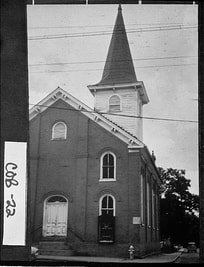 AME Turner Chapel, 1964. Courtesy Georgia Archives. AME Turner Chapel, 1964. Courtesy Georgia Archives. Cobb Landmarks & Historical Society is celebrating Black History Month with a new Black History Walking Tour of downtown Marietta. The tour will take participants on a journey through time, from the founding of Marietta through the Civil Rights Movement. "While this walking tour presents a number of important Black heritage sites in Marietta, it's just a start. We hope people will be inspired to go learn more after the tour," said Executive Director Trevor Beemon. The walking tour is approximately 1.5 miles long and should take about one hour to complete. The tour features many significant sites in Marietta, including Zion Baptist Church, one of the earliest Black congregations and churches in the state of Georgia. The tour also features the newly rehabilitated Lemon Street Grammar School, and includes stories about the desegregation of public schools in Marietta. "My hope is that tour-goers will walk away with a better understanding of the events, people, and places from Marietta’s past that formed the city we live in today," said Beemon. To take the tour, visit cobblandmarks.com/blackhistory. As part of a new educational initiative at the William Root House Museum & Garden, Cobb Landmarks is partnering with historians, local businesses owners, and “celebrities” for a series of entertaining and educational videos about everyday life during the 1860s. The videos, which are viewable both online and on touchscreens located throughout the Root House campus, show modern-day people trying their hand at 19th century tasks.
The first video in the series was filmed in the cookhouse at the Root House. For the video, Cobb Landmarks reached out to Pie Bar to see if they would be interested in baking a pie in our 1850s cast iron cookstove. Lauren Bolden, who owns Pie Bar along with her husband, agreed to take part in the project. Lauren’s enthusiasm came through during every step of the process. During filming, Lauren discussed the ingredients and the recipe, while adding humor here and there. Finally, the pie went into the oven. The final result? A pie that “does not reflect the quality of pies we serve at Pie Bar,” as Lauren put it. Another video challenges Brielle Gaines, CEO & Co-Founder of Tiny Bubbles Tea Bar, and Mariah Rutledge, Manager, to correctly set a formal afternoon tea using instructions culled from Mrs. Crowen's American Lady's Cookery Book, published in the 1860s. Another video features local entertainers taste-testing popular 19th century dishes including foods like dandelion greens, beef tongue stew, and vinegar pie - all prepared by local food historian Clarissa Clifton and her associates. It is our hope that these and future videos will provide a bit of levity and entertainment to educators and students - all while sneaking in important information about the time period and about how the spaces inside the Root House would have been used during the 1850s and 60s. If you would like to contribute to the production of future videos, you may make a donation to the Cobb Landmarks Operating Fund online here. In 2018, Marietta’s c. 1845 Martin Slaughter House was at risk of being demolished for a residential development project. After a rewarding discussion between Cobb Landmarks and the property owner, Traton Homes, plans for the site were revised so that the house could remain (totally awesome of Traton)! But what would happen to the house next was another question. That’s when Marsha Durham stepped in with the dream of making the Slaughter House her home. “This project has been such an amazing act of love and a journey that I truly treasure,” said Marsha of the restoration project. “The contractors that I worked with on this project were great and executed every vision I had to make this house into our home.” They are Chris Bailey and Nick Brannon of C & B Construction and Chris Michaels of Residential Property Preservation. “My daughters and I look forward to honoring the history of the house while making many beautiful memories.” Marsha takes us on a tour of the home: Outside “The walkway was constructed of old brick that was dug up from the back yard. These original bricks were covered with layers of dirt, debris, and overgrowth. My daughters and I dug them up on Mother’s Day, knowing that we wanted to use them in a special way. They make a perfect inviting entrance to the home.” Entry “Walking into the home we wanted an inviting entrance. The wood floors in the kitchen and family room were hidden treasures buried beneath layers of carpet. They are beautiful 6-inch-wide heart pine planks which were restored in a natural finish to bring out their original beauty. The hearth in the entrance is reclaimed wood using a support beam from underneath the structure of the home. The details in the wood, including nail holes, add such character to the feature wall.” Office “This was a great nook that we were able to create to become a home office. The walls are a reverse pine to bring out a rough appearance. The desk was constructed from two original support beams that were underneath the home. I think it’s a beautiful way to use original pieces of the structure and preserve more of its history.” Treasures
“These medicine bottles were found when digging out brick in the back yard of the home. They are hand-blown glass and I believe that these treasures may have been from Dr. Martin Slaughter’s time living in this beautiful home.” Kitchen “I wanted the kitchen to be a big part of our home. We want people to be able to enjoy the history of this home, and what better way than to gather together over a meal? The original 9-over-9 windows were an important part of the history of this home, and we wanted to be able to feature them in any way we could. We decided to do built-in benches below the side windows so that we could keep the integrity of the windows. The benches are a great addition, allowing friends to gather and enjoy the heart of the home.”
Depending on the number of family members using the privy, the waste or "night soil" would have to be removed from the vault two or three times per year. This would have never been done during the day. "Night men" would have been called to come after dark. The night men used long-handled dippers to collect the waste under the cover of darkness. The night soil was then taken away to be discarded or sold as fertilizer to nearby farmers. In the city of Marietta, privies were required to be "cleaned at least once every ten days, and be sprinkled with lime." During inspection, if the privy was not "free from filth and stench," the owner could be fined or even jailed.
Hoping to capitalize on the tremendous growth of the area during the second half of the 19th century, the Western and Atlantic Railroad developed a brochure in 1885 to advertise passenger schedules, and to describe the cities and attractions in the area. Joseph M. Brown, who later served as Governor of Georgia, was working for the railroad at the time. Serving as General Passenger Agent, he was responsible for providing content for the brochure. Brown decided to include a description of each city along the rail line. When writing about Marietta, he wrote that it was “the little Gem City of Georgia.” The phrase stuck - for a while.
After a few decades, “The Gem City” was used less and less to describe Marietta. Eventually, new phrases and slogans like "It's Hip to be Square" were developed, and “The Gem City” began to fade into obscurity. Fast forward to the early 2000s when Cobb Landmarks is working on a Marietta history book. Written by Douglas M. Frey, the book explores Marietta's history with stories of fifty historic Marietta houses. When it came to naming the book, there was a clear choice. It would be called Marietta: The Gem City of Georgia. Today Cobb Landmarks is keeping the phrase alive with a line of products available in the Gift Shop at the William Root House Museum. Gary Lassiter, a descendant of Hannah and William Root, recently contacted Cobb Landmarks to say that he had something to give to the organization. The imaginations of the Cobb Landmarks staff members went wild. The last time Lassiter had stopped by the William Root House Museum, which is owned and operated by Cobb Landmarks, he ended up donating a stack of some forty Root family letters written between 1830 and 1890, as well as a collection of books, countless family photos, and a variety of personal items from Hannah, William, and the Root children. A direct descendant of Mary Root, Hannah and William’s only daughter, Lassiter has collected and preserved Root family heirlooms his entire life. Lassiter arrived at the Root House on January 17th with a large package in tow. Before revealing the contents, he began to tell a story that sounded familiar to Cobb Landmarks Executive Director Trevor Beemon. The story was about a Presbyterian Minister named John Simpson, an ardent patriot during the Revolutionary War and grandfather of Hannah (Simpson) Root. A resident of Chester County, South Carolina, John Simpson had been the pastor at Fishing Creek Church since 1774, but decided to join the local militia led by Thomas Sumter in 1780. That same year, Lord Cornwallis, the British commander in the south, ordered British Legion commander Lieutenant Colonel Banastre Tarleton to find Sumter and his men. Notorious Loyalist commander Christian Huck was sent to capture Simpson at Fishing Creek Church on Sunday, June 11, 1780. Huck had intended to find Simpson and his congregation at the church, but he found no one there. Huck ordered the church be burned and started toward Simpson’s home. Simpson’s wife, Mary, was informed of Huck’s impending arrival and took her children to hide in an orchard near the home. When Huck arrived, his men ransacked the house and set the house, library, and barn on fire. When the British soldiers departed, Mary ran into the burning library to save as many books as she could. Suffering from burns, Mary was able to save two aprons full of books, including the family Bible - this family Bible, which Lassiter now held in his hands. If the story sounds like something straight out of Hollywood, you’re right. Both Banastre Tarleton and Christian Huck inspired the character Colonel William Tavington in the movie, The Patriot. The film’s character, Reverend Oliver, is loosely based on John Simpson. The events of June 11, 1780, are also commemorated each year during a reenactment held at Historic Brattonsville in South Carolina. The event includes a reenactment of the burning of Simpson’s home and his wife’s retrieval of the family Bible. Beemon, who had studied the Revolutionary War in college and had attended the reenactments held at Brattonsville several times, was shocked to be holding the Bible that had been part of such an incredible Revolutionary War story. Research into the Bible confirms that it was published in 1700. Likely damaged during the fire, the Bible was rebound in 1788. The Bible was handed down to Hannah Root’s father, Leonard Simpson, and was then handed down to Hannah and William Root upon Leonard’s death in 1856. The Roots had the Bible rebound again in 1860, and a final time in 1888. Though the Bible has been rebound several times, it still retains its original front and back covers, which include signatures from Rev. John Simpson, William Root, and William’s sons, “Willie” and “Jim.” Cobb Landmarks plans to build a special case and design an exhibit panel to tell the story of this rare artifact. The Bible will be displayed in the Root House, returning it to the place it resided during the mid-1800s when the Root family owned it. “Cobb Landmarks is truly honored to have this Bible in our collection and we thank Gary Lassiter for his generosity and his faith in our organization to care for this treasure,” said Beemon.
|
Cobb LandmarksWe are committed to empowering our community with an understanding of the events, people, and places that formed our past, so that we may all strive for a brighter future. Won't you join us? Archives
March 2024
Categories
All
|
|
You must think preserving local history is important or you wouldn't be reading this!
Did you know we're a 501(c)(3) nonprofit organization? That means we rely 100% on financial support from businesses, foundations, and individuals - people just like you! If you support our mission to share the stories and preserve the places that form our community, please consider getting involved! |
NEWSLETTERSign up with your email address to receive discounts, event reminders, and preservation updates.
|
MOST Viewed Pages |
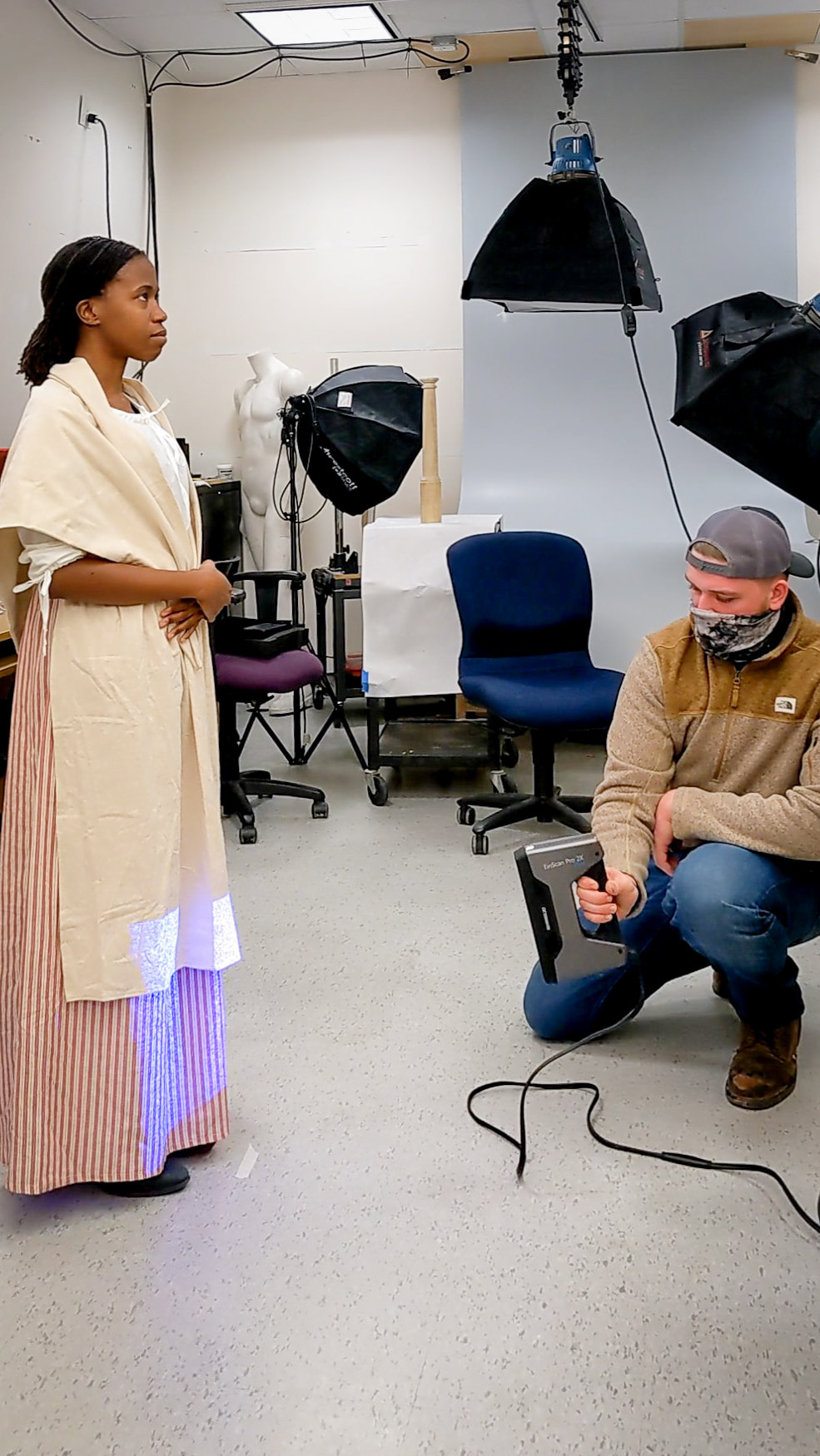
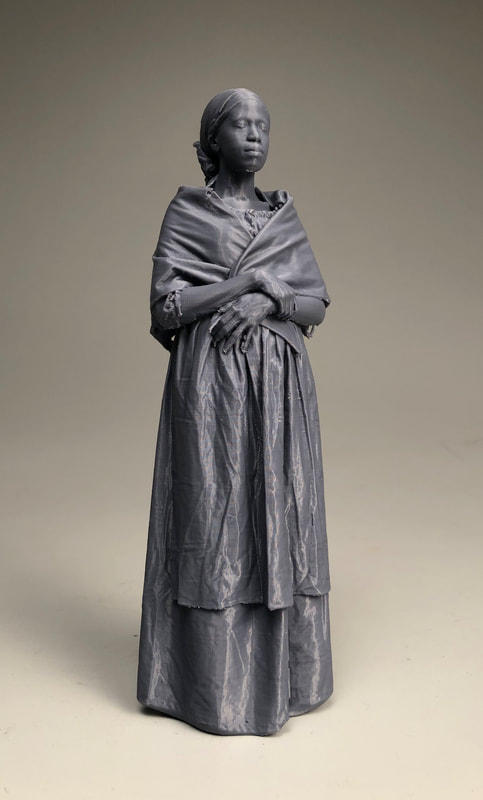
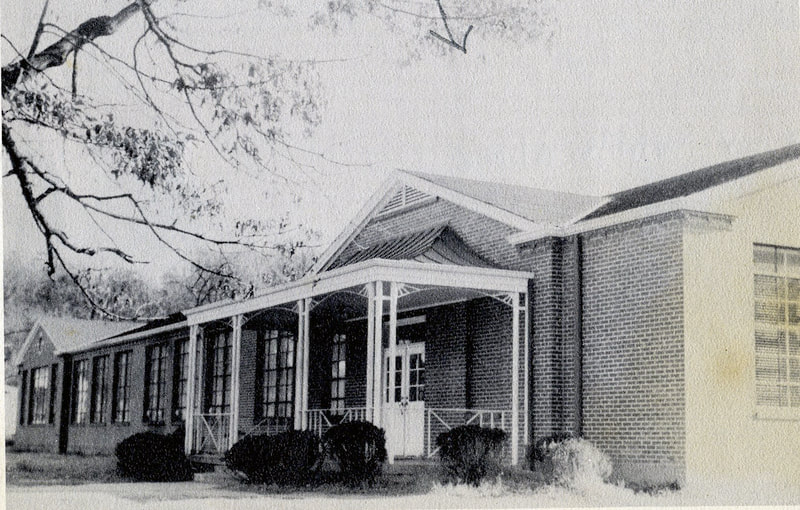
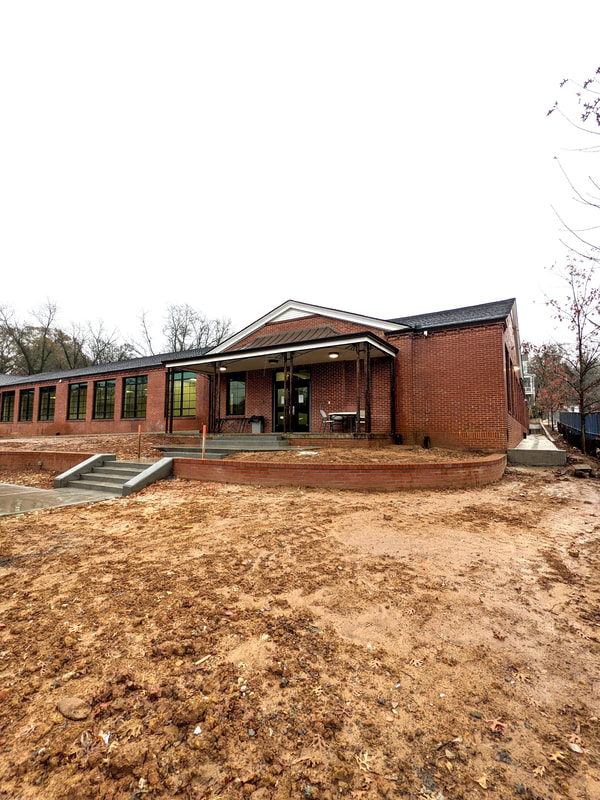
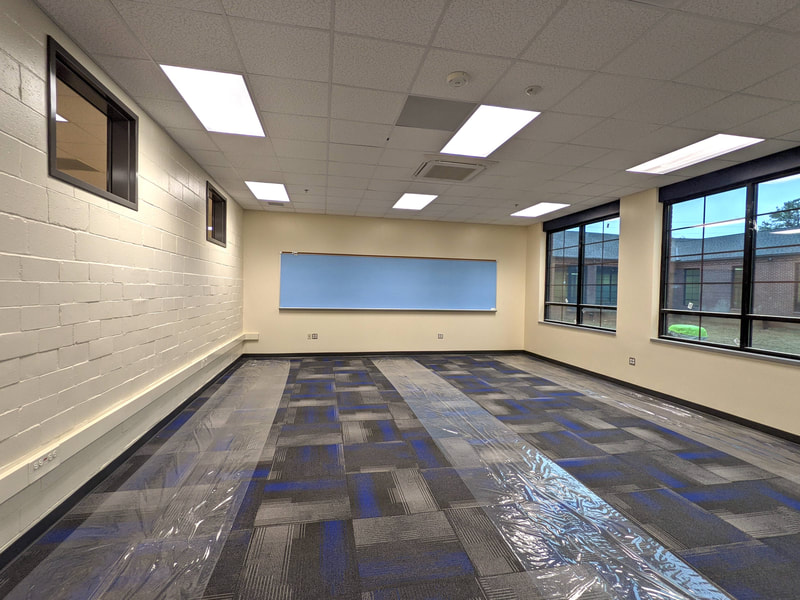
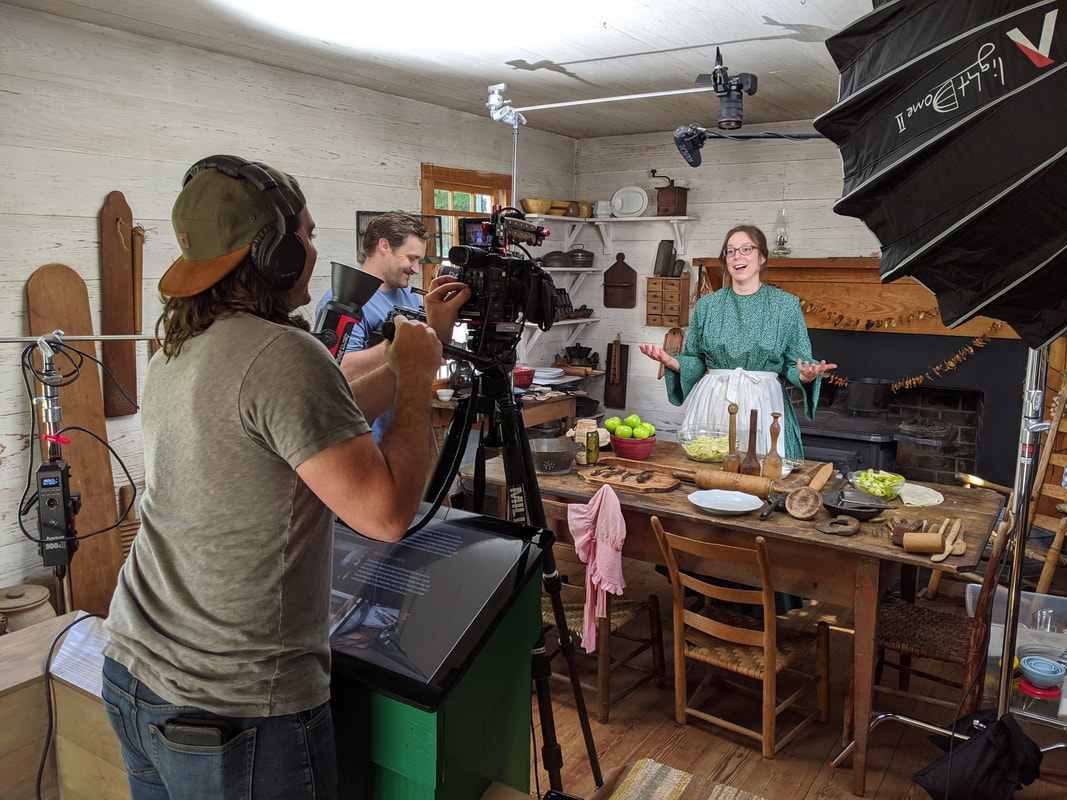

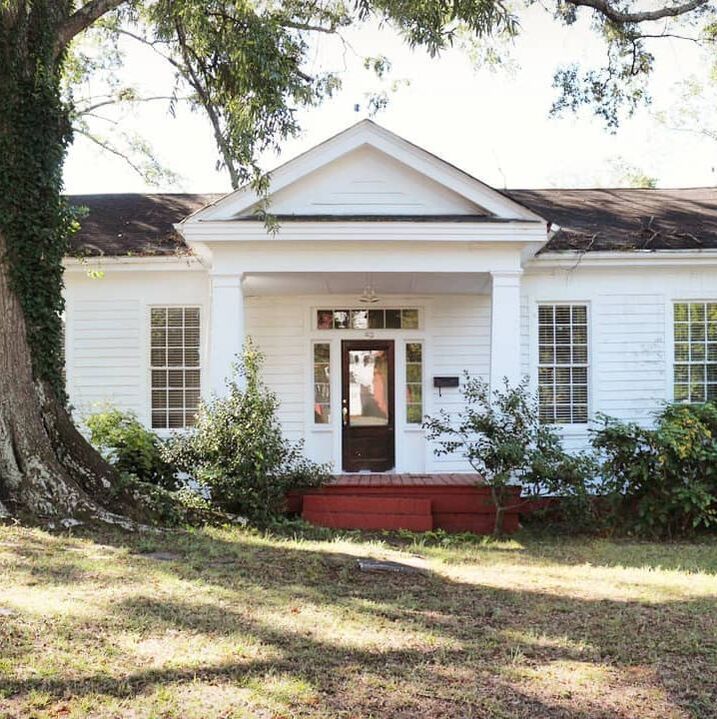
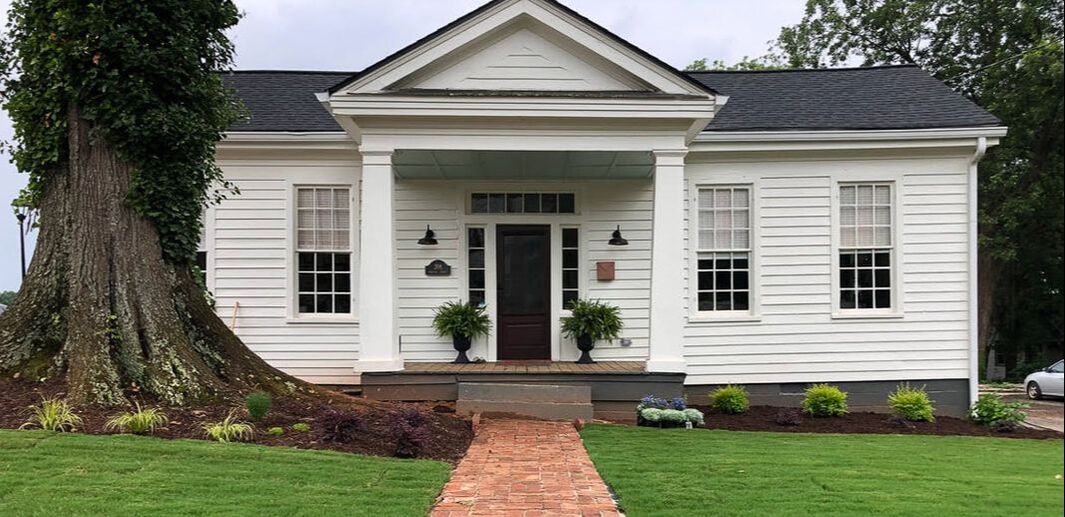

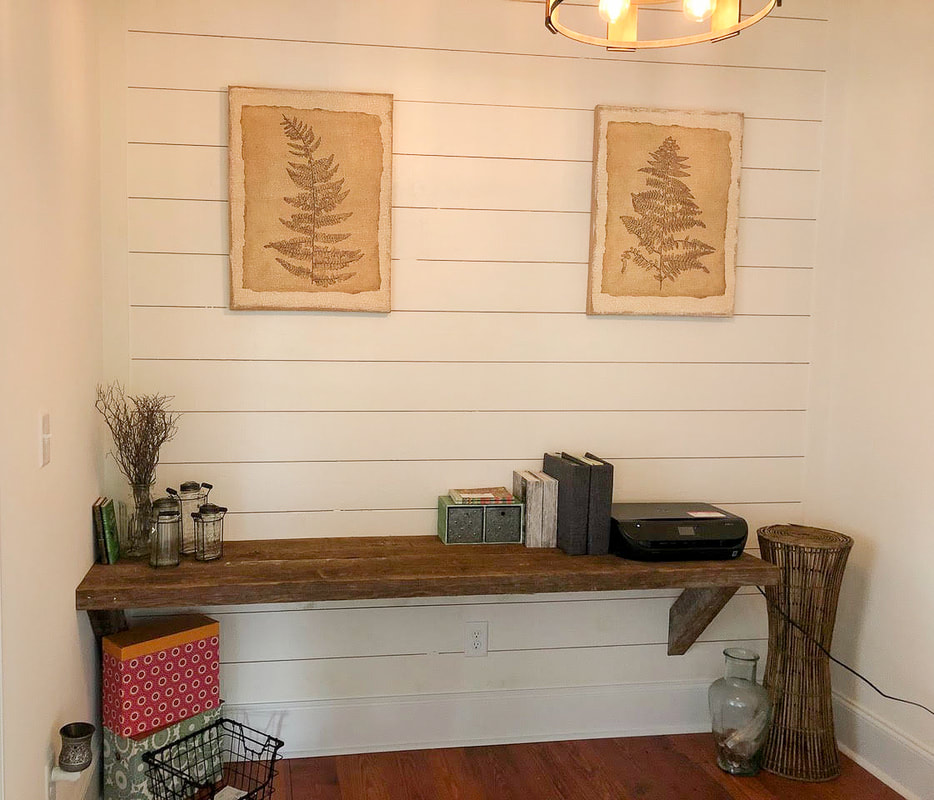
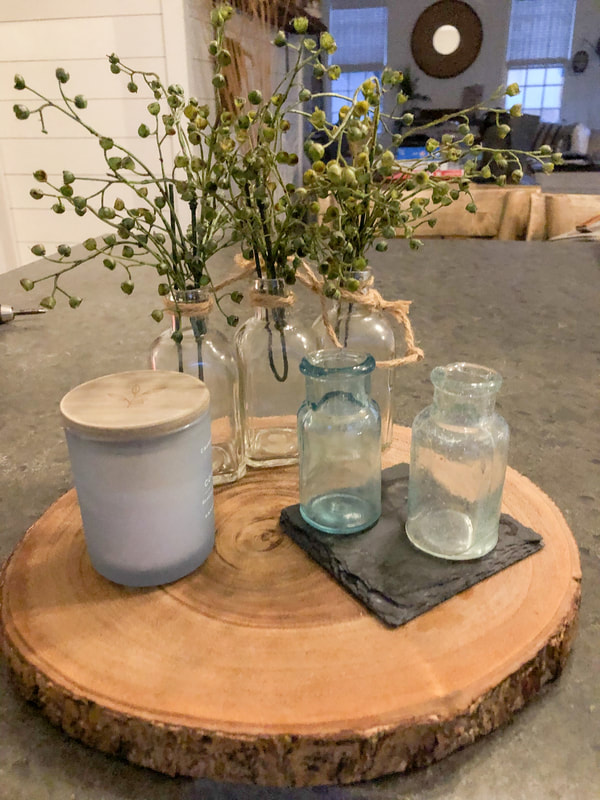
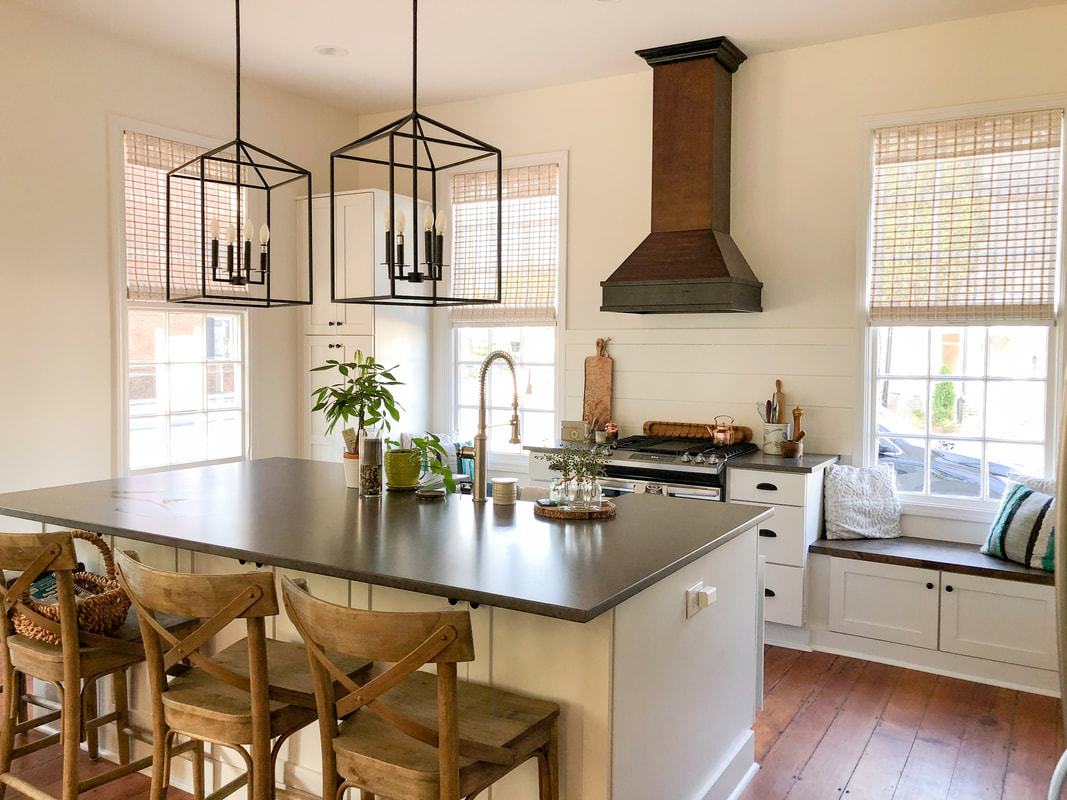
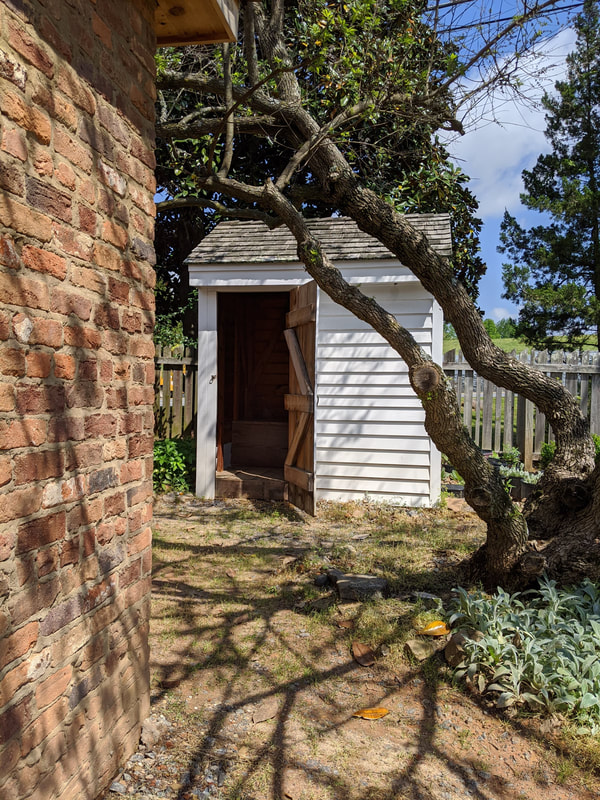
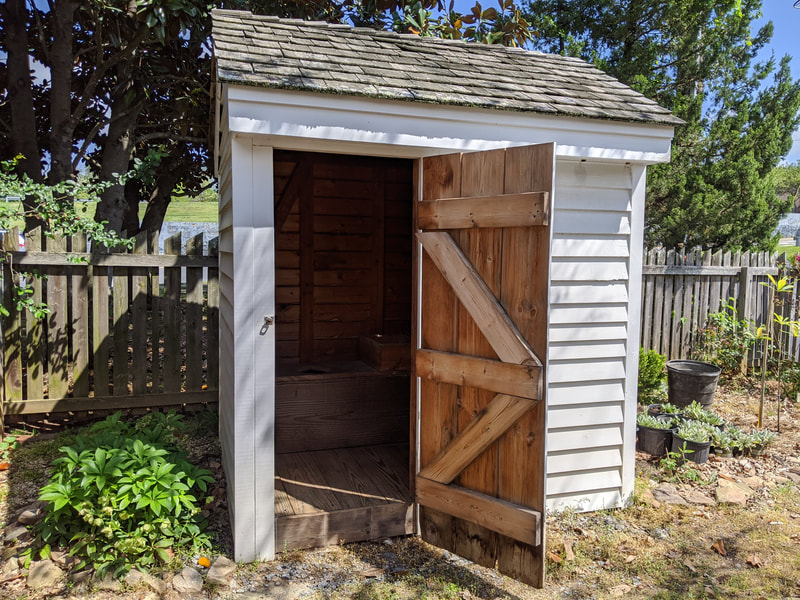

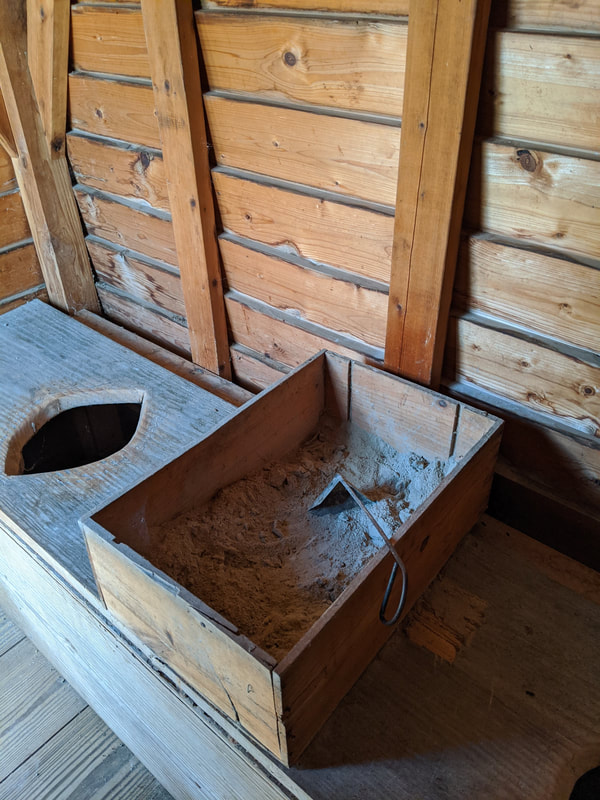
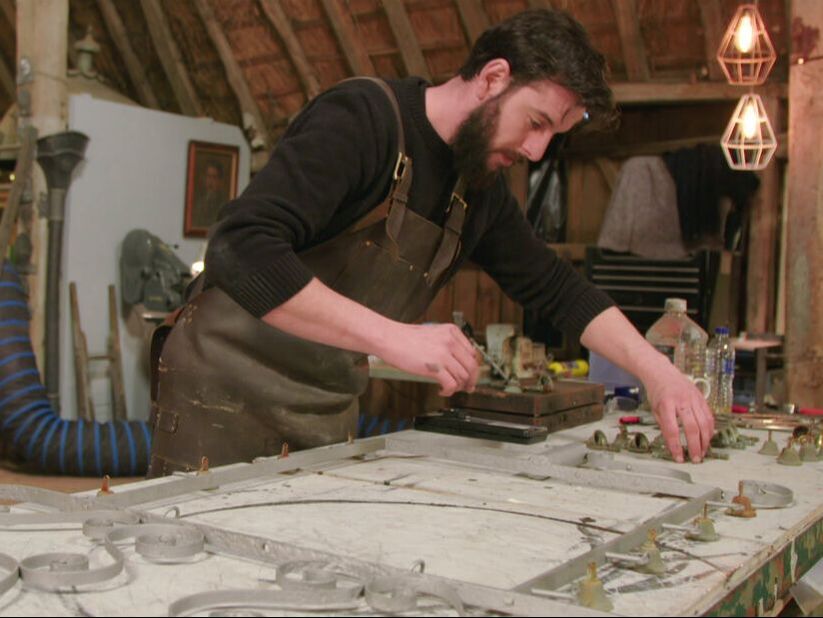
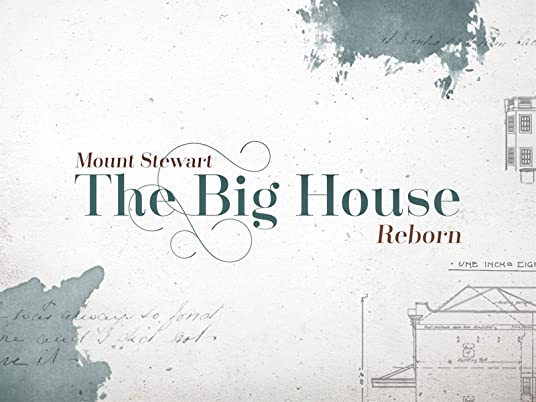
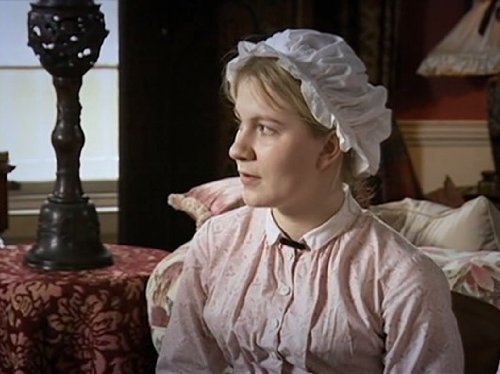
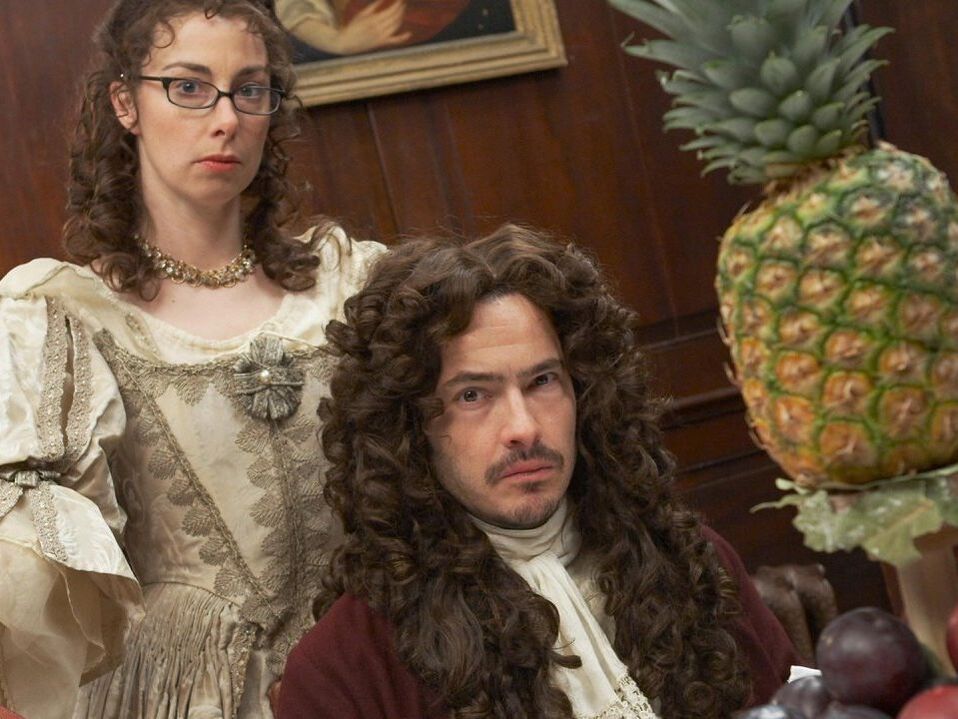

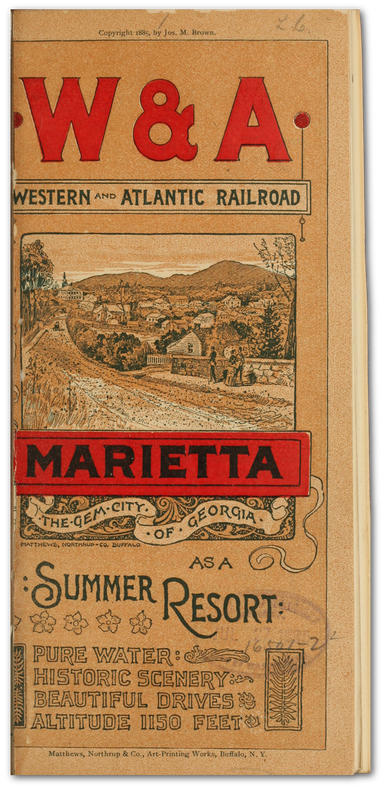
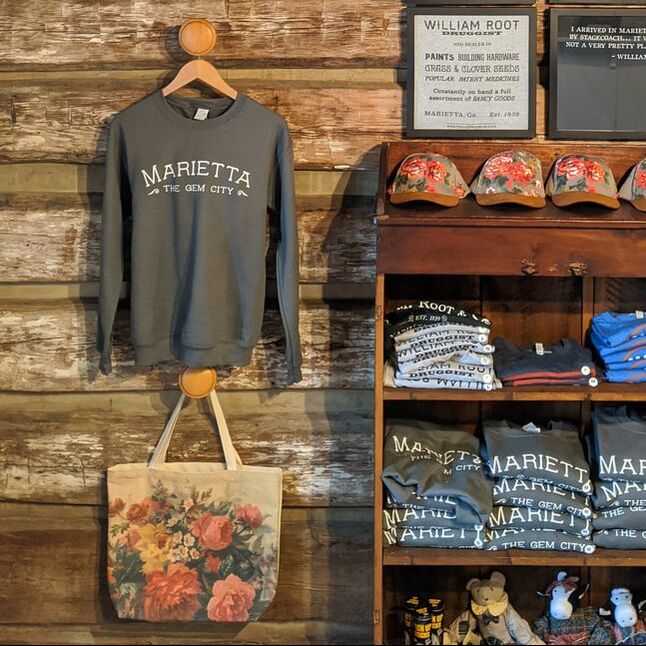
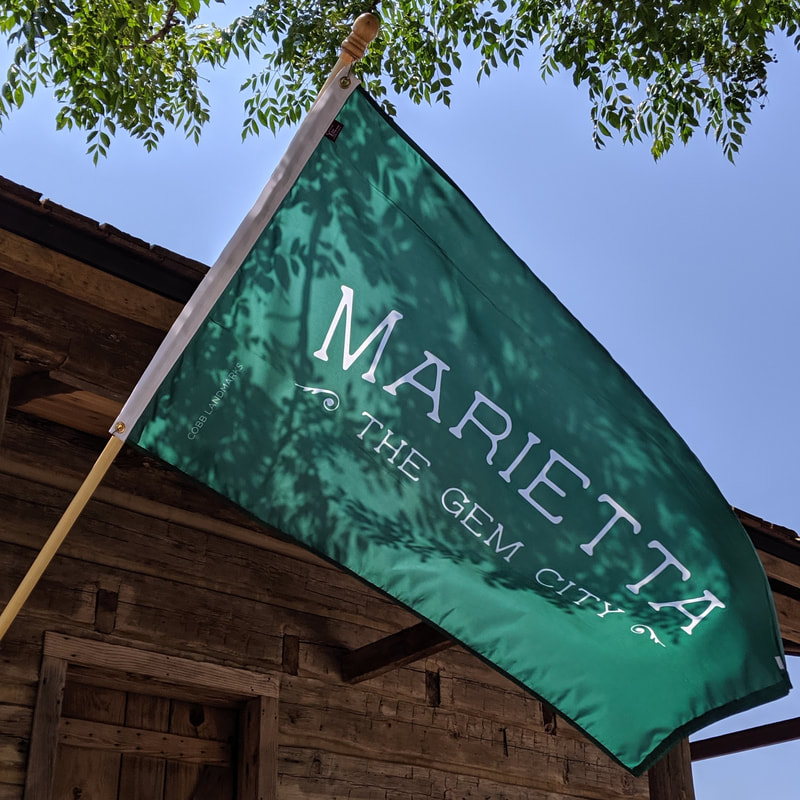
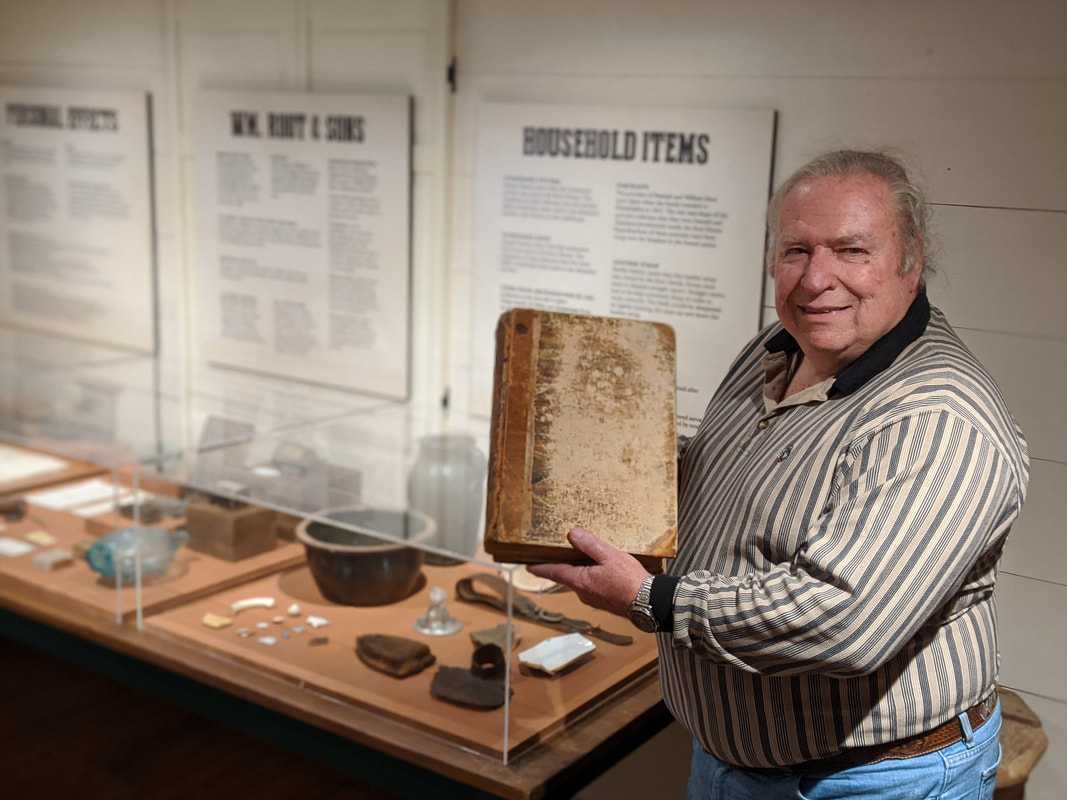
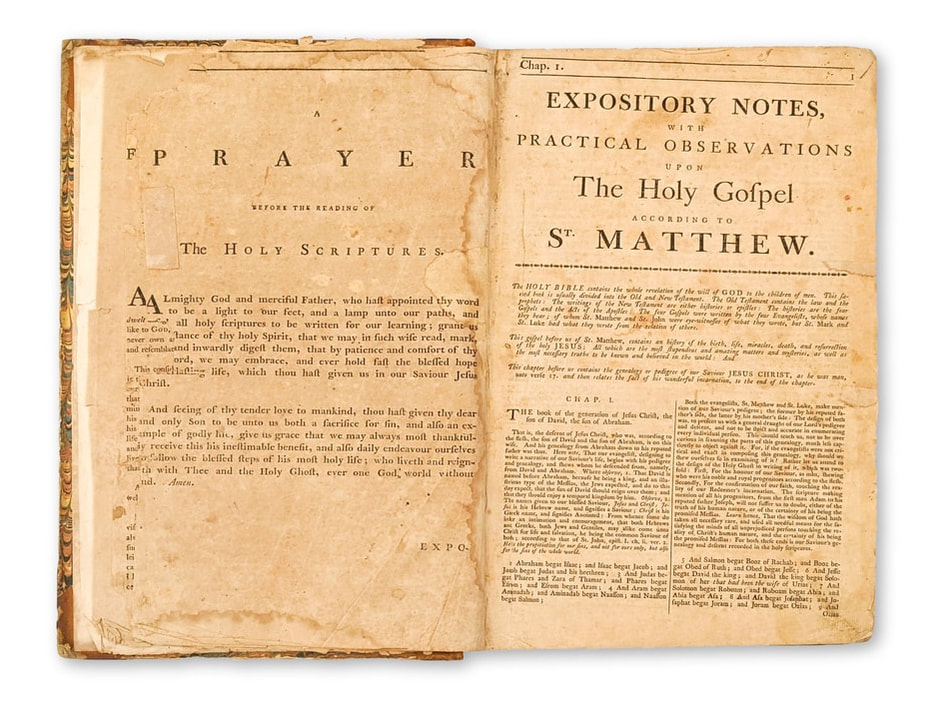
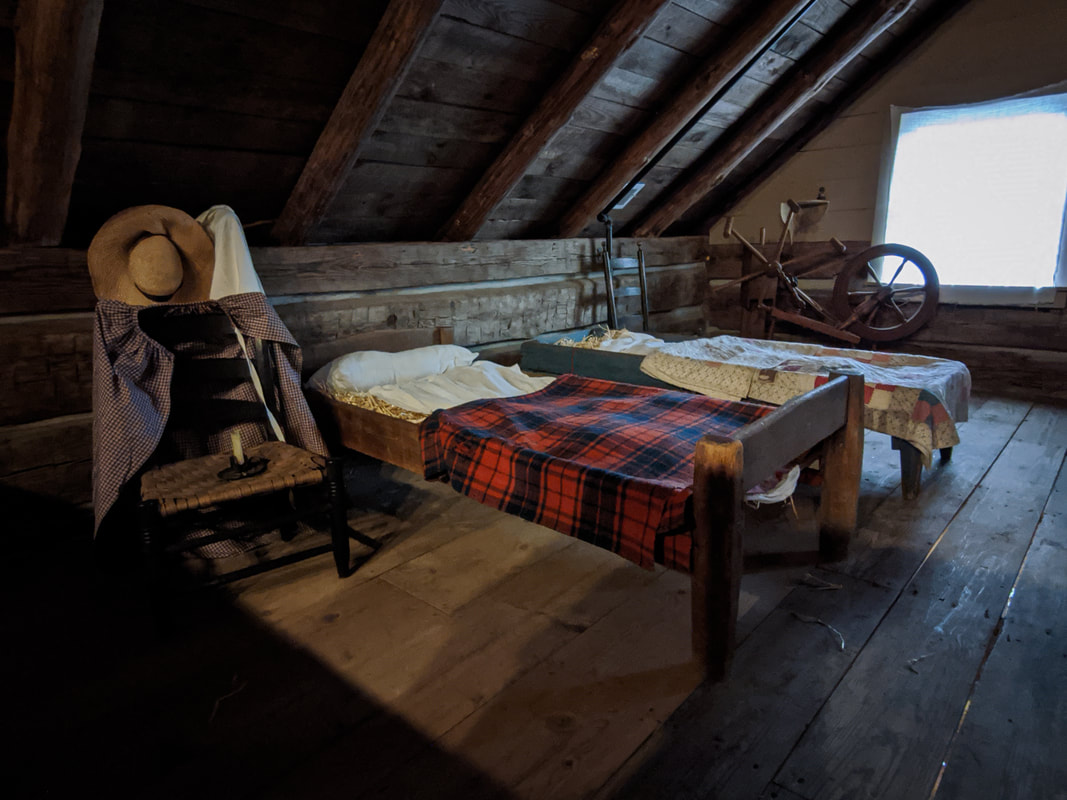
 RSS Feed
RSS Feed
